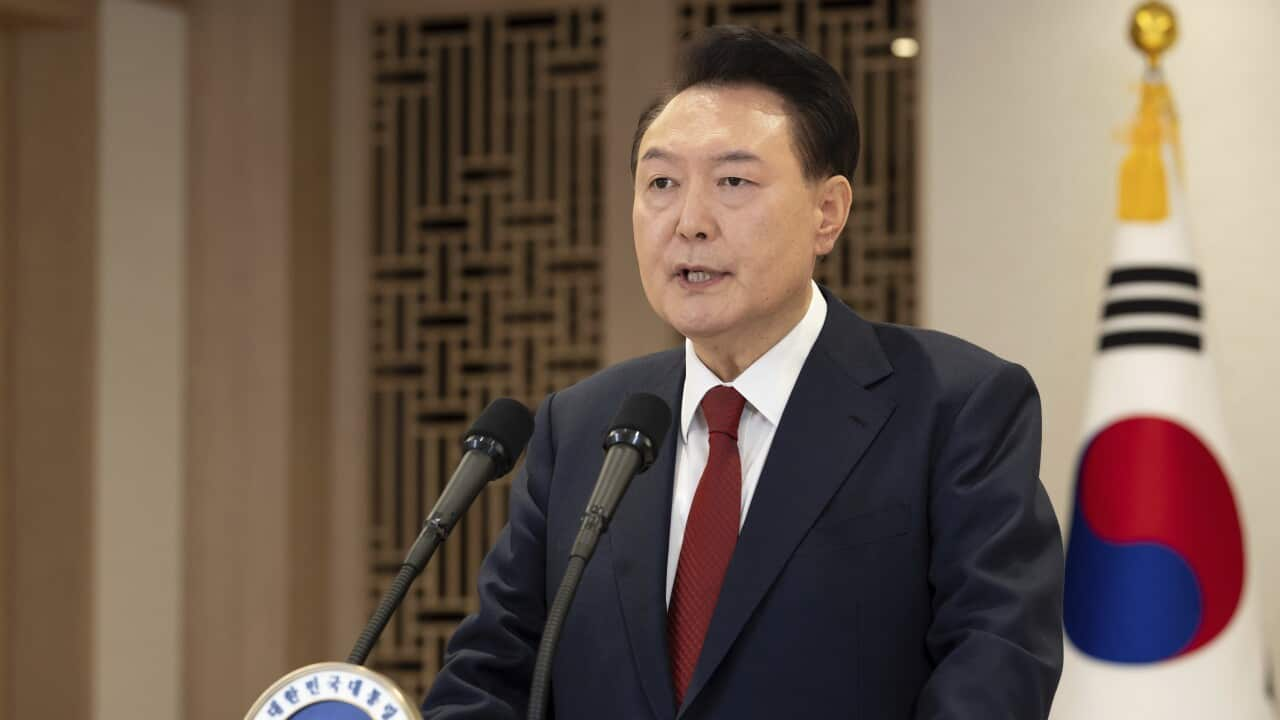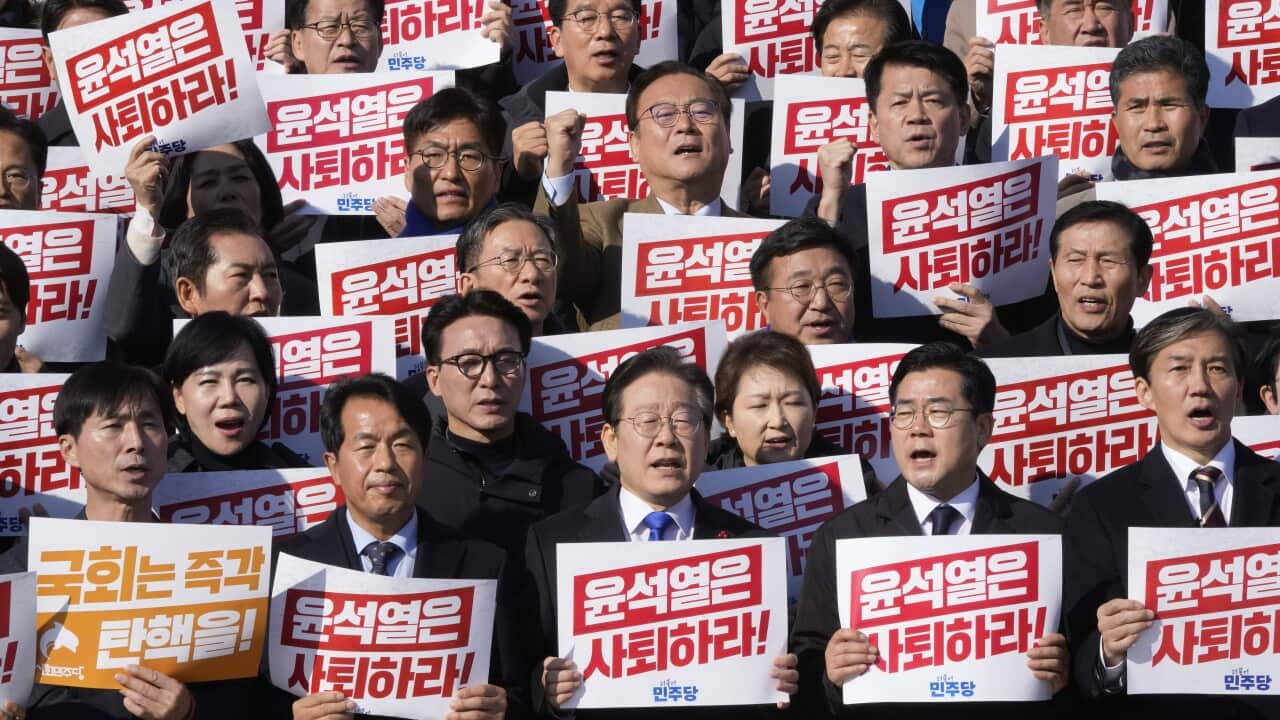South Korean authorities have arrested impeached president Yoon Suk Yeol over insurrection accusations related to his , investigators said.
Politicians voted to stand him down after the martial law declaration, and he has since remained at his hillside residence, guarded by a small army of personal security that blocked a previous arrest attempt.
Yoon said he submitted himself for questioning to avoid any violence after more than 3,000 police officers marched on his residence to arrest him in the early hours of Wednesday.
"When I saw them break into the security area using firefighting equipment today, I decided to respond to the CIO's [Corruption Investigation Office] investigation — despite it being an illegal investigation — to prevent unsavoury bloodshed," he said in a statement.
Yoon's supporters and members of his ruling People Power Party protested efforts to detain him, while his lawyers have argued the attempts are illegal and are designed to publicly humiliate him.
The arrest warrant secured by investigators is the first ever issued against an incumbent South Korean president.
Why was Yoon arrested?
Yoon's declaration of martial law stunned South Koreans and plunged the country into political chaos.
He has also been under investigation on charges of insurrection and was summoned for questioning by the CIO, but he did not appear.
An arrest warrant was first granted on 31 December, but , and police failed to arrest Yoon. A and he was arrested on 15 January after an hours-long standoff.
Yoon's lawyers said the arrest warrant was illegal because it was issued by a court in the wrong jurisdiction, and the team that was set up to investigate him had no legal mandate to do so.
Why did Yoon declare martial law?
Yoon on 3 December, saying he was trying to protect South Korea from "anti-state" forces.
"To safeguard a liberal South Korea from the threats posed by North Korea's communist forces and to eliminate anti-state elements plundering people's freedom and happiness, I hereby declare emergency martial law," he said during his live televised address to the nation at the time.
Yoon also spoke about his domestic political opponents and described the opposition as "anti-state forces intent on overthrowing the regime".
He described the imposition of martial law as "inevitable to guarantee the continuity of a liberal South Korea".
Yoon exercises 'right to remain silent'
Shortly after he was taken to the CIO offices in a convoy, investigators began questioning Yoon but they said later he exercised "his right to remain silent".
He refused to be filmed during questioning, a CIO official told reporters, adding that Yoon would spend the night at a detention centre.
In a later Facebook post — which Yoon said he wrote while holed up in his residence — he repeated election fraud claims and spoke of "hostile" nations attacking the country, alluding to North Korea.
Yoon's die-hard supporters had been camped out at the gate of his residence to protect him, as authorities first moved on the compound.
His supporters were heard chanting "illegal warrant!" while waving glow sticks and South Korean and American flags.


